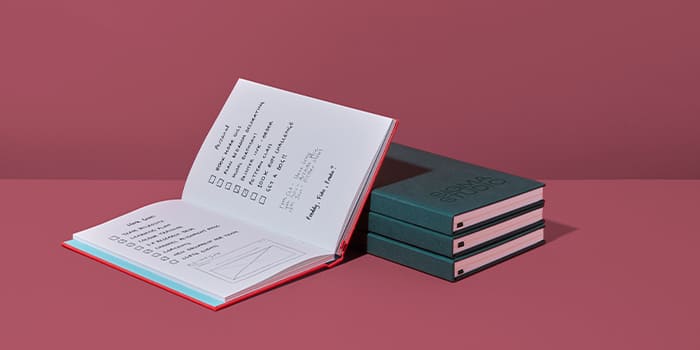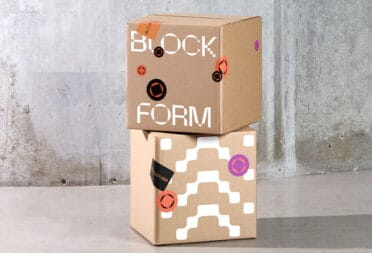The psychology behind gift-giving: One for you, one for me
Why do we give gifts? Explore the psychology behind gift-giving in this handy guide.

Gift-giving goes back a long way – almost to the dawn of humanity. And it’s not stopping anytime soon. This seemingly simple gesture carries a lot of meaning. Giving gifts helps form bonds and foster relationships, making it a foundation in the fabric of society.
So, why do we give gifts? Discover the psychology behind gift-giving and its benefits for relationships and mental health in this handy guide.
What’s in a gift?
A gift is defined as something material or immaterial voluntarily given to a person, group of people or entity without any payment in return, to celebrate an occasion or provide support. Why do we give gifts, then, investing time and money into thoughtful presents without expecting anything in return?
Just because no payment is expected, doesn’t mean giving gifts doesn’t come with rewards. Gift-giving as a human behavior actually serves a specific evolutionary purpose: helping people form connections and build communities. This explains how prevalent it is across cultures, getting people closer together and strengthening personal and professional relationships.

5 benefits of gift-giving
The benefits of gift-giving are various – and they’re as good for the giver as they are for the receiver, if not even better. And it’s all down to gifting psychology.
It’s nice to be nice
Kindness is (and always will be) “in”. The psychology behind gift-giving lies on a foundation of kindness and caring. The act of showing kindness, for example by giving someone a present, actually has an incredible effect on your physical and mental health. All the more reasons to be nice! According to data gathered by Random Acts of Kindness, expressing kindness to others – for example through gift-giving – can lead to an increase in energy, lifespan, feelings of love and happiness, and can even help relieve pain and lower blood pressure. It also highlights research from Emory University that suggests good deeds lead to increased activity in the brain’s pleasure and reward centre – just as much as if you were the recipient of said gesture. They call it the “helper’s high” and it would be a shame not to try. Rhyme intended.

Stronger bonds
The act of gift-giving sparks a connection between you and the recipient. Customer, client, friend… No matter who receives the gift, your gesture shows you recognize and value them as a part of your world. By enhancing this sense of connection, gift-giving helps form strong bonds and build lasting relationships.
This principle of gift-giving psychology has been essential to humans as a society, to support each other and grow together. A group of researchers studying the effects of charitable donations found that giving activates a region of the brain associated with social bonding. Cool, huh?

The power of empathy
Empathy is one of the pillars of the psychology of gift-giving. When you’re giving a gift, you want to delight the recipient – whether it’s a lovely surprise or some well-needed support. Looking for a present implies trying to understand that person. In this, gift and psychology go hand in hand. You’re showing interest in their needs, desires and interests. You’re essentially exercising your empathy muscle.How is this a benefit for the giver? By showing the recipient you’ve put yourself in their shoes to come up with a thoughtful gift, you’re encouraging them to do the same for you. They’ll be more likely to make the effort to better understand you in the future. Empathy also promotes helping behaviors, strengthens relationships and helps regulate your own emotions.
Expressing gratitude
Giving can be a form of expression and is even considered one of the five love languages by Dr. Gary Chapman. Love is an essential component when it comes to the psychology of gifts. Expressing yourself with a token of your appreciation can be an effective way to communicate your gratitude. It’s a sign you recognize the tremendous contribution of someone to your life and want to reciprocate.While it might be seen as rude to shove a present into someone’s arms without uttering a word, gifts can help you say what you’re struggling to express on your own. It can also reinforce your message, showing that you’re not “all talk and no action” as you’ve taken the time to find a thoughtful gift. Time to send your best clients the corporate gift basket they deserve!

Reciprocation (sometimes)
We hate to admit it, but sometimes we do offer presents in the hope of receiving something in return. Sometimes, we even dread the future implications of being the recipient. It doesn’t mean you’re not generous or that you want people to “owe” you. It just means you want to build a balanced relationship, where both parties get treated equally.
Reciprocation doesn’t necessarily entail material gifts – it’s about rewarding the giver by acknowledging the effort that went into gift-giving. It can go from a thank you note to a favor, or, if you’re very lucky, that pony you’ve always dreamed about.
If you want to tap into the power of gift-giving psychology, you can get started right here. Add your own twist with MOO’s custom Notebooks, Planners and award-winning Water Bottles. And if you need more help designing your branded gifts, our business subscriptions are here to help. Just fill out our form below and a member of our team will be in touch!
Keep in touch
Get design inspiration, business tips and special offers straight to your inbox with our MOOsletter, out every two weeks.



